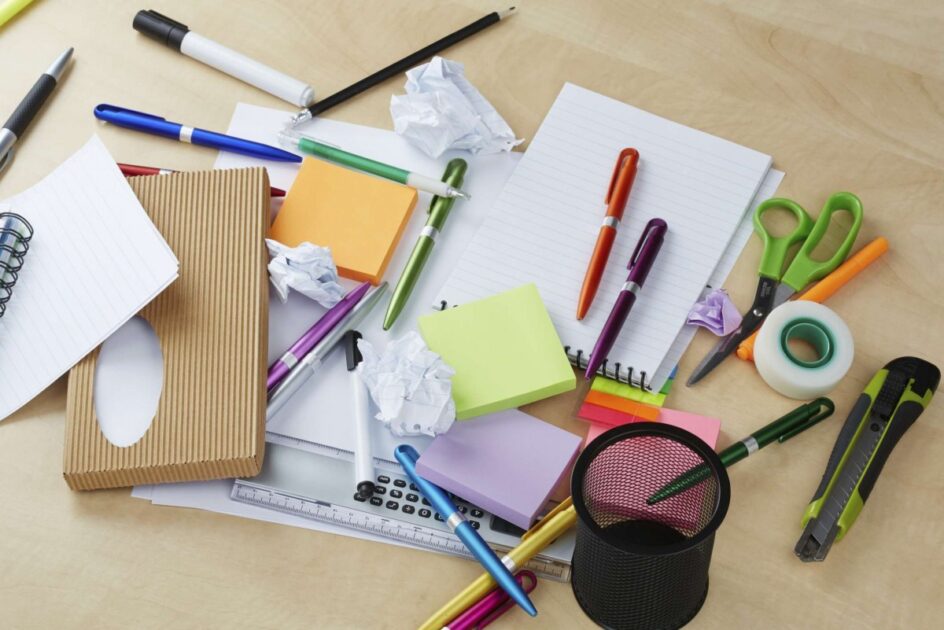How to be more organised
Great tips on improving your time management and organisation skills

Time management and organisational skills go hand in hand, and if, like a lot of us, you’re not naturally great at either one, you’re going to need a little help. Not to worry though: it’s pretty easy to teach yourself these skills, and make your life a little easier (or at least a little neater). Here are a few suggestions to make sure you’re using your time to your best advantage, and staying organized while you’re at it.
Make to-do lists
To-do lists are wonderful: not only do they give you a chance to get everything out of your head, where it could get easily lost, but it’s so satisfying to check things off once you’ve done them, too. Be sure to get everything out, but it’s good to start big and work your way down to the little stuff. Prioritizing your tasks by level of importance or by due date can make it easier to see what needs to be done, especially because it’s easy to get freaked out by a large number of small tasks. With to-do lists you can keep that panic at a minimum, and stop wasting time worrying.
Use a planner
In some ways planners are sort of just long-term to-do lists, but they have their own benefits: you can schedule things pretty far ahead, and have every commitment right there at your fingertips to look up whenever you need to. Notice, however, that it doesn’t say “use planners;” if you’re using more than one planner you’re shooting yourself in the organisational foot. It’s best to keep just one, and to update it regularly.
Keep a journal
Okay, so far all of these tips have involved writing things down, but there’s a reason for that, and that reason is that you are a busy human, and you’re bound to forget things. Keeping a journal—just to jot thoughts and ideas down in, as you think of them—is a useful tool for remembering things that may not belong on your to-do lists or in your planner.
You could also try keeping an activity journal, to figure out what in your time management life needs improvement. To do this, just record, approximately, how much time you spend each day doing which activities, and record how you felt about it, whether or not it was important, etc. At the end of a few days or a week, it may be that you’ve discovered you spend a lot more time on social media than you should, and can now proceed to fix that problem.
Tidy
Tidy relentlessly and fiercely. If you really don’t need it, don’t think twice about acquainting it with the trash can (or recycling bin). Clean spaces are extremely beneficial to clear minds, and to keeping you from getting distracted, or projects from getting lost. It’s best to tidy as you go, also, before things start piling up in a heap.
Give yourself a little time
All this writing of things (and cleaning) is going to take some time, so, go ahead and give it to yourself. Take 15 minutes at the beginning of each day to meditate, tidy, make those lists, update your calendar, and to make sure you’re on top of things before you start working. Similarly, at the end of the day, wind down 15 minutes early and make sure everything is ready for tomorrow. Also, take breaks! If you feel like you’re just getting bogged down with work, get up and get out, and clear your head. Slogging ahead won’t get you anywhere in the long run.
Assess yourself
It’s up to you, ultimately, to optimise your time, and only you can really answer the questions of what’s getting in the way, or what makes you work really well. Do you work best in the morning, right when you’ve had your coffee? Plan to get the majority of your work done then, and use your afternoons for smaller tasks on that prioritized to-do list. Do you get restless easily? Schedule studying time in shorter blocks, with snack breaks in between. Can you have music on while you work, and still get things done? Are you a good multitasker? Are you prone to procrastination? Once you analyse your personality (and your bad habits) you can start to figure out how best to work, and how to avoid those bad habits.
Learn when to say 'no' or 'later'
Sometimes, when it comes right down to it, we just have to say no to things. This could mean keeping your phone in another room while you work, or restricting social media use, or maybe telling a friend you can’t hang out. Think of it this way: those activities will be a lot more fun when you don’t have a huge load of work hanging over your head, anyway. You’re not saying no, you’re saying later.
Learn when to say yes!
Reward yourself—no matter how you manage your time, or how messy your desk is, you’re a hard worker. Take those study breaks, buy that cupcake, book those concert tickets. It may take time, effort, and practice to learn these new skills, and to make and break habits, but what’s most important is that your life is the way you want it. So, don’t forget to say yes to yourself every once in a while.






